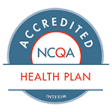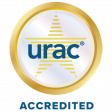
After you have a baby, it is very important to continue seeing your doctor, not just for your baby but for your health and well-being as well. After you have given birth, your doctor will check you both physically and mentally. Be sure to ask for help if you need it.
Call your doctor if you are having signs or symptoms such as:
- Thoughts of suicide or hurting your baby
- A red, swollen leg that is painful or warm to the touch
- Pain and/or redness around the
- c-section site, episiotomy or perineal tear
- Fever of 100.4 or higher
- Pain or burning when urinating
- Breast pain or lumps around the breast area
- Increased heart rate or palpitations
- Shortness of breath or breathing difficulty
- Increase bleeding with or without blood clots or soaking the pad so that it requires more frequent changes
During your follow-up check-up:
- Your doctor will check your blood pressure, weight, stomach, and breast.
- If you had an episiotomy during a vaginal delivery, the incision should be healing without signs or symptoms of infection.
- Your doctor will tell you when it is safe to have sex again and advise you on the appropriate use of birth control.
- If you were diagnosed with gestational diabetes, your blood sugar level will be checked.
- A nutrition consultation may be recommended for breastfeeding mothers to ensure the baby is getting enough milk.
- Mothers may need information related to proper nutrition to make sure they stay healthy, and properly hydrated and can provide an adequate amount of milk to the baby.
Post-partum depression
Some women may experience signs and symptoms of post-partum depression, possibly caused by hormonal changes right after birth.
Tell your doctor if you are
- Feeling sad
- Crying without any reason
- Feeling resentful that you had the baby
- Feeling anxious and panicky
- Constantly tiredness
- Having trouble sleeping
- Overeating
Your doctor may order a blood test to check your hormone levels and/or prescribe medications, counseling, and referral to a support group.
Post-partum care is essential for both you and your baby. Don’t be afraid to call your doctor at the first sign of any problem. This includes your physical and mental health, as well as the health of your baby. Remember that post-partum depression may begin even a month after you give birth. There is help out there, and you don’t have to go through this alone. Your doctor wants what is best for you and your baby.






